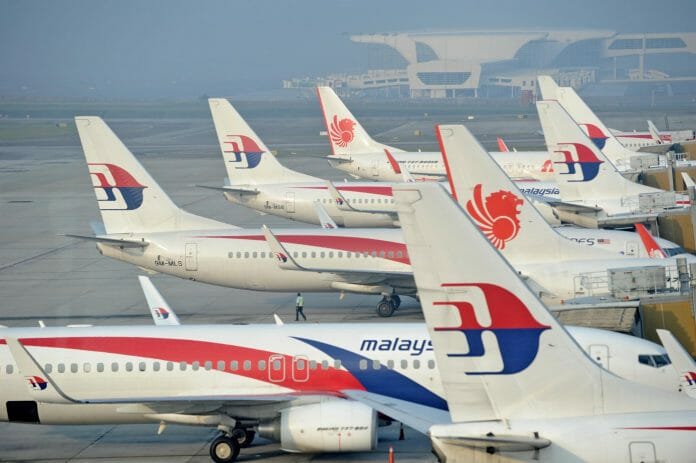Malaysia Aviation Group (MAG), the parent company of Malaysia Airlines, achieved a net profit of RM766 million — a first in close to a decade since its establishment in 2015.
MAG’s first full-year profit performance for 2023 results, saw a marked increase in profitability rising from a net loss of RM344 million in 2022.
This marked a 22 per cent improvement on its Earnings Before Interest, Taxes, Depreciation, and Amortisation (EBITDA) at RM1.97 billion compared to RM1.6 billion a year ago.
Revenue last year recorded a total of RM13.85 billion, compared with RM10.61 billion for the previous year, an increase of nearly 31% year-on-year.
Regarding the group’s turnaround from losses to profits, MAG’s group managing director Datuk Captain Izham Ismail said the passenger traffic and capacity had increased by 47 per cent and 61 per cent year on year contributing to one of the strongest recorded load factors averaging 77 per cent compared to 72 per cent a year ago.
“I am pleased to announce that for the financial year ending 31 December 2023, MAG has achieved a positive operating profit of RM889 million ― a 64 per cent improvement from RM540 million in 2022. This marks the second consecutive year where we have achieved positive operating profit; a testament to our unwavering dedication and strategic management in navigating through challenging times.
MAG’s passenger numbers increased significantly by 47% last year, while flight capacity increased by 61% year-on-year.
This drove Malaysia Airlines’ revenue to increase by 45% year-on-year, and its operating profit surged more than 12.7 times year-on-year, from RM80 million in 2022 to RM1.099 billion.
Creating sustainable growth
Izhan Ismail pointed out that MAG will use the tailwind performance momentum in 2023 to continue to create sustainable growth.
In addition, MAG chief financial officer Boo Hui Yee said that MAG’s cash on hand was RM4.27 billion at the end of last year, which was less than the RM4.56 billion at the end of 2022 due to capital expenditures.
“This year, we forecast that we will remain cash positive on a daily basis.”
In addition to Malaysia Airlines, MAG currently also operates Firefly and MASwings, which focus on domestic routes, as well as Haji Airways that carry Haj Air passengers.
Now, in 2024, MAG aim to consolidate their credibility further by focusing on innovation and adaptive service delivery. With financial stability, they plan to reinvest in cabin upgrades, expand their fleet, and cater to evolving customer needs.
Their commitment to service excellence is exemplified by the successful migration of catering operations to MAG Catering (MCAT). Looking ahead, MAG intend to sustain growth momentum by prioritising innovation, operational efficiency, and superior customer experiences, investing in talent, technology, and infrastructure.
Additionally, they are diversifying into aviation services businesses such as MRO (maintenance, repair and overhaul), catering, ground handling, and cargo, aiming for these to contribute significantly to their revenue by 2025.
“Despite anticipated challenges in air travel yields, MAG is confident in its strategic moves to mitigate risks and embrace future opportunities with enthusiasm. The groups diversification strategy is expected to contribute up to 30 per cent of the group’s total topline by 2025.
“This strategic move is pivotal in mitigating revenue risks, particularly amidst the anticipated softening of air travel yields in the latter part of 2024,” Izham Ismail said.
All business segments across the group registered a year-on year (YoY) improvement during the year. Main airline, MAB’s total revenue improved by 45 per cent compared to the year before, underpinned by higher capacity, strong demand and focus on the international sector for passenger business segment. Capacity was at 90 per cent of 2019 levels.
MAB achieved significantly higher operating profit at RM1.099 billion from RM80 million in 2022, attributable to higher capacity and robust yield amid strong passenger travel demand. In terms of capacity, the airlines business collectively achieved more than 89 per cent across its domestic and international routes, while Malaysia Airlines has reinstated 86 per cent of pre-pandemic capacity as at end December 2023, with a targeted full recovery expected by Q2 2024.
Passengers carried by MAB was 52 per cent higher than previous year with load factor at 77 per cent while yield declined by 3 per cent with more capacity deployed. MAB On-time Performance (OTP) is down at 72 per cent, compared to 82 per cent a year ago affected by supply chain issues and aircraft constraints, among others.
Apart from that, MAB introduced three new destinations to India ― Amritsar, Trivandrum and Ahmedabad and resumed flights to Kertajati, Indonesia.
As part of a financial restructuring exercise, Khazanah in 2021 committed to inject a total of RM3.6 billion in new capital to fund MAG’s business until 2025.
However, Izham Ismail on Thursday revealed that MAG had received less than half of that amount or RM1.3 billion.
“To start the ball rolling following the restructuring, Khazanah pumped in RM1.3 billion. From then on, MAG has reinvented itself by pulling all the right levers on its strategy, and the remaining was never drawn down,” he said.
Notably, the RM16 billion debt restructuring plan that was given the green light by the UK High Court in March 2021 involved all of MAG’s key stakeholders, which saw bilateral agreements signed between the group and finance lessors, spare engine lessors, maintenance service providers, corporate lenders, and government of Malaysia-related entities.
Key elements of the restructuring included network cuts, structural cost savings, cash conservation and payment deferral initiatives.
However, it is worth noting that prior to 2021, it was reported that a total of RM28 billion was injected into MAB by Khazanah until then.
When asked whether the aviation group will start paying dividends to Khazanah, Izham said he envisions MAG to be able to give back to its shareholder some time in the future.
“No conversation at this current time, but that would be the ideal state,” he said.









